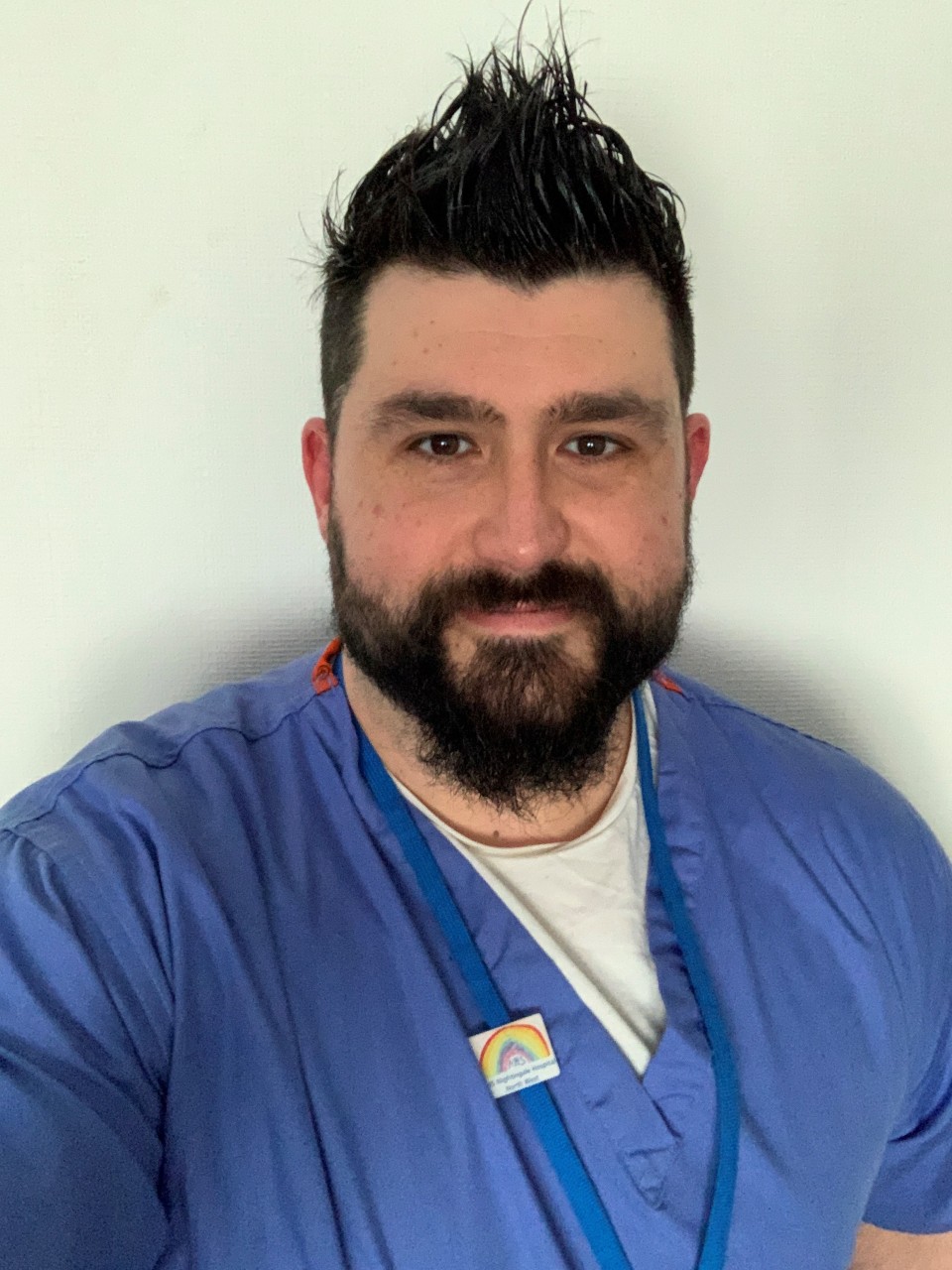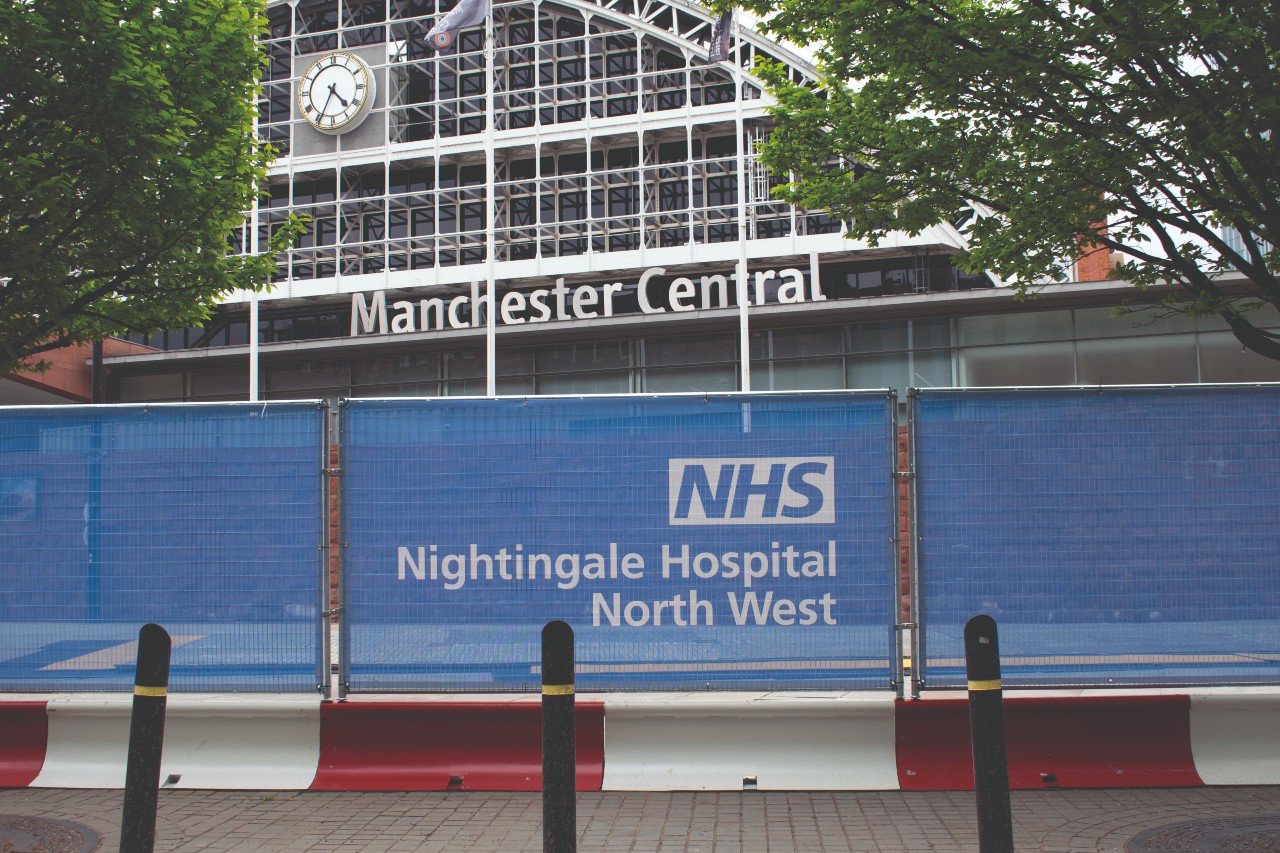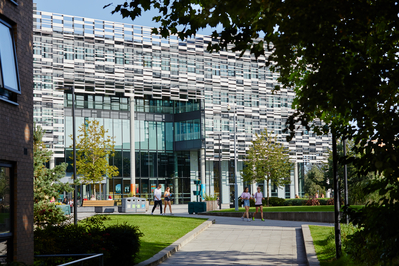Playing the long game
The sight of patients in intensive care units, struggling for breath and surrounded by dedicated NHS staff in PPE, has sadly become all too familiar to all of us over the last year.
It is the evidence of the direct impact COVID-19 can have on people’s lives. The daily battle for life against a hidden killer that has pervaded all aspects of our lives.
But there is now a growing awareness of the potential for longer term impact – the mysterious condition which appears to affect people at random.
People who have experienced very mild symptoms of COVID-19 itself and then are hit by long-term debilitating issues. Extreme fatigue, shortness of breath, brain fog, joint pain, pins and needles. All symptoms of what has become known as “Long COVID”.
Now, as the country continues on its long road back to normality thanks to the roll out of vaccines, the impact of Long COVID is something that is high up on the NHS agenda.
New dedicated centres are being established around the country to tackle the issue, with specialist teams of doctors, nurses, physiotherapists and occupational therapists to offer both physical and psychological assessments and refer patients to the right treatment and rehabilitation services.
A Manchester Metropolitan student has had experience of this multi-disciplinary approach to helping patients with a range of conditions, including Long COVID, get back to some sense of a normal life.
“People with a good level of fitness that I typically worked with before, were now struggling to get out of a chair. I found it quite shocking,” said Sam Baxter, a 36-year-old trainee physiotherapist in his third year, and one of a distinctive cohort who can say they honed their skills during the most significant public health event in modern history.
Though teams seemed closely-knit before, this was times ten. Working in the Nightingale Centre feels like five placements at once, but I’ve always felt supported and getting that experience of how teams work together at this scale is something I feel lucky to have seen
He has been working with patients at the Manchester Central Nightingale Hospital, the converted events and convention centre created to support the NHS during the pandemic. Manchester Central, well-known as the city’s major destination for hosting conferences, exhibitions and events, was transformed into a £10m huge open-plan hospital facility in April 2020, as part of a UK-wide network of facilities, to soften the impact the growing number of infections would have on NHS services.
The centre, originally intended to take the North West’s most acutely ill patients with COVID-19, became a 750-bed rehabilitation facility to accommodate patients, many of whom had recovered from the virus.
Baxter is working as part of a team of different specialists, caring for patients in Intermediate Care: a half-way point for patients who aren’t unwell enough to take up a specialised hospital bed. It’s centred around people being well enough to go home, dealing with the after effects of having the virus or other conditions, working on mobility, building up strength for basic tasks, improving movement so they can return home.
Baxter explained: “You get the people that have got all these things and you just need that extra step to get back to your life. I’ve seen post-COVID patients who had normal abilities before they caught it and now even talking leaves them short of breath.
“Mobility is a massive thing, being able to do things safely as well, functional tasks like standing from sitting and getting in and out of the bed.
“If they have stairs in the house, we’re trying to help them with that. And if they can’t do it because they’ve lost some strength or are injured, then it’s strengthening exercises.
“It’s building up that tolerance to get there again, because it’s not like they’re not strong enough to push themselves off the chair. It’s just that doing it takes so much out of them that standing is too much. It’s doing what we can to get that tolerance back up, because that’s so new, especially with COVID. There’s no ‘ok in three weeks it’ll be back’ – we just don’t know, it’s been different with so many different patients. The treatment and therapy is as varied as the conditions really.”
And Baxter believes some of the rehabilitation and multidisciplinary work being done now will become the future for the treatment of patients.

“It feels like that’s the next stage,” he said. “But for these patients who have got it, they’re already there. So it’s just trying to bring that up and realise some people have quite foggy memory. This is going off not just patients as well, but people that I know who have had it and felt like they’ve got some sort of brain fog for up to two weeks, some of them for months.
“It has been very odd about how bad people can catch it. What it leaves people with seems to be just as individual as well.”
Physiotherapy is a different path to what Sam anticipated for himself, even a few years ago. When an injury ended his prowrestling career early, a chance encounter with a newly qualified doctor changed his career-path and inspired him to go back to university.
He had initially pursued a career in personal training following a rehabilitation focused on building back strength and fitness. Baxter joined his course a long time before the pandemic could have been predicted.
Though he could never have intended it, he now has a unique insight in to the NHS before and after the pandemic. He completed his first placements before the first surge of COVID-19 cases, and now, a year since the pandemic was declared, he’s completing his final ones during the second, more aggressive wave pushing hospitals and health workers to their limits.
“My first placement happened when COVID was known, but not yet in the UK,” he said. “There’s been a difference. Though teams seemed closely-knit before, this was times ten. Working in the Nightingale Centre feels like five placements at once, but I’ve always felt supported and getting that experience of how teams work together at this scale is something I feel lucky to have seen.”
The diversity of the physiotherapy discipline is often overlooked or misunderstood by many, perhaps because of the amount of applications there are.

To think of physiotherapy, one might picture someone pitch-side at sporting events, crouched next to injured athletes. It might be a service accessed when a shoulder or back freezes, a complaint all too familiar in the age of home working.
In extreme circumstances, it could be a vital part of recovering from an accident or serious health event, such as a stroke. But rehabilitation services are increasingly playing a vital role in supporting the primary, as well as specialist care services where the road to treatment begins, making sure people are seen, diagnosed and treated quickly, before health conditions progress and become harder to manage.
You’d think in a pandemic with the huge amount of work the teams are doing in such a busy place, there wouldn’t always be that time to help students, but that hasn’t been the case. I feel a part of the team and being a student almost feels secondary. It’s been great to be a part of.
The NHS is slowly recovering from the focus of space, time and resource on managing the impact of the COVID-19 pandemic, and as a result, the spotlight is also shifting to the delays this has created.
It’s unknown how many people who would have visited their GP with symptoms have delayed this, due to lockdowns or concerns of putting the NHS under more pressure.
There are reports of backlogs of cancer cases, as well as later-diagnosis of life changing conditions due to delays in screening programmes.
Even before COVID-19, Musculoskeletal (MSK) conditions accounted for approximately 30% of general practitioner (GP) consultations in England, costing the NHS £4.76 billion each year. If those people could go direct to the specialist, it could save time, resource and money, benefiting both patients and the NHS.
Because of this, physiotherapists are increasingly supporting GPs and other ‘firstpoint- of-contact’ services known as ‘primary care’, in taking on more responsibility in their roles, including spotting the most serious conditions, when time is critical, such as cancer.
First-Contact-Practitioners (FCPs) are a new, growing field basing physiotherapists with enhanced skills and powers to treat, diagnose and refer patients, directly from GP offices.
The role of the specialism in supporting the NHS and stopping the most serious health complaints from escalating, is becoming increasingly recognised. Researchers at Manchester Metropolitan are supporting the development of the FCP role, carrying out a study to examine the effects this increasing responsibility is having on the physiotherapy profession, and reinforcing the professional position in becoming the first point of contact in diagnosis and treatment.
Dr Gillian Yeowell, Reader in Speech and Physiotherapy and Researcher said: “Now, more than ever, systems need to be as robust and efficient as possible. Our research intends to support professionals and decision makers in understanding what will make this role as effective as possible, developing professional training and supporting health outcomes for patients, not just with the most serious of conditions, but across health services in dealing with such common conditions as musculoskeletal discomfort or pain.”
It is dealing with such a range of patients and making breakthroughs which is one of the most rewarding aspects of Baxter’s physiotherapy training. He explained: “I was working with a patient who was recovering from a head injury and I had never worked in this area before. I was one of the few people who he felt comfortable speaking to and that will always stick with me.
“An unexpected feeling for me, was seeing people go home. Nothing can beat that and the feeling that the whole team worked together and contributed to making that happen.
“You’d think in a pandemic with the huge amount of work the teams are doing in such a busy place, there wouldn’t always be that time to help students, but that hasn’t been the case. I feel a part of the team and being a student almost feels secondary. It’s been great to be a part of.”
As the vaccine roll-out continues, case-numbers are dropping across the country. The government is slowly and cautiously relaxing national lockdown restrictions, giving sight of some semblance of normality, if a new type, post-pandemic.
As the dust settles, alleviating the long-term effects of the pandemic across health, social care and the economy are of utmost priority. The evolving role of rehabilitative services like physiotherapy and the allied health professionals in them, are at the forefront of supporting the health of the nation now more than ever, and in the aftermath of the pandemic, the NHS’s long journey to recovery.
Manchester Metropolitan’s role in shaping these professionals, and the professional standards they work within, is continuing to grow.
Shaping the role
Manchester Metropolitan has one of the largest cohorts of physiotherapy students in the UK, with hundreds of students all requiring regular and diverse placements each term, reflecting the growing skill set and experience of working with other disciplines as a team.
Making sure physios-to-be experience the sheer diversity of these career paths and find which route is best for them is the responsibility of Jane Ashbrook and Joanne Nicholson, Senior Lecturers in Physiotherapy and Practice Placement Coordinators.
“It’s no easy task, even in ‘normal times’, but I think the pandemic has brought a lot of change, needing us to think outside the box,” said Nicholson.
“Health and social care has changed a lot in recent years and there has been a need to adapt placements to reflect this, for example, more and more people are being cared for in the community, there’s an increase in use of telehealth.

“Because the profession is so diverse, we want to provide those innovative placements that spark in our students where they could go in the future, not just give them the experience they need now.”
That ‘future’ has led Manchester Metropolitan alumni to successfully pursue careers in everything from life-changing research to leadership roles to performance physiotherapy, supporting actors and athletes in TV and film productions.
“Alongside four or five more traditional placements, we aim to give our students at least one unusual placement to demonstrate the breadth of the profession.”
Leadership placements are a recent development for this focus on the future introduced in 2020, where second and thirdyear physiotherapy students shadow professionals at the top of their game, in senior management positions.
Nicholson explained: “I think it gives our students that insight into the bigger picture of the NHS, healthcare as a whole, and the projects that go on behind the scenes that students might not typically see. By seeing those in leadership roles, it helps students to see the impact their work could have on a much larger scale.”
